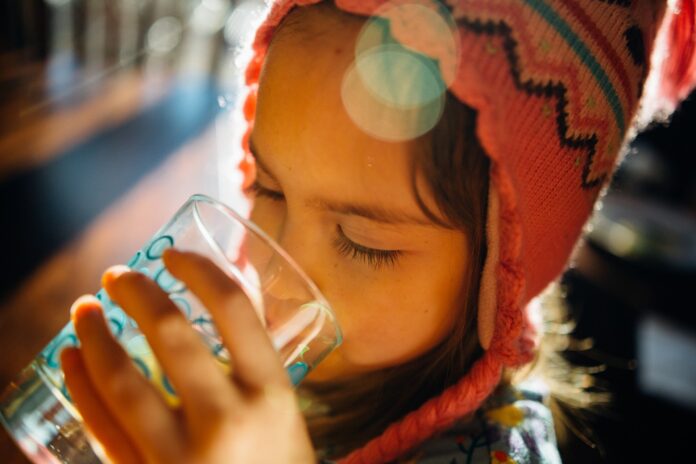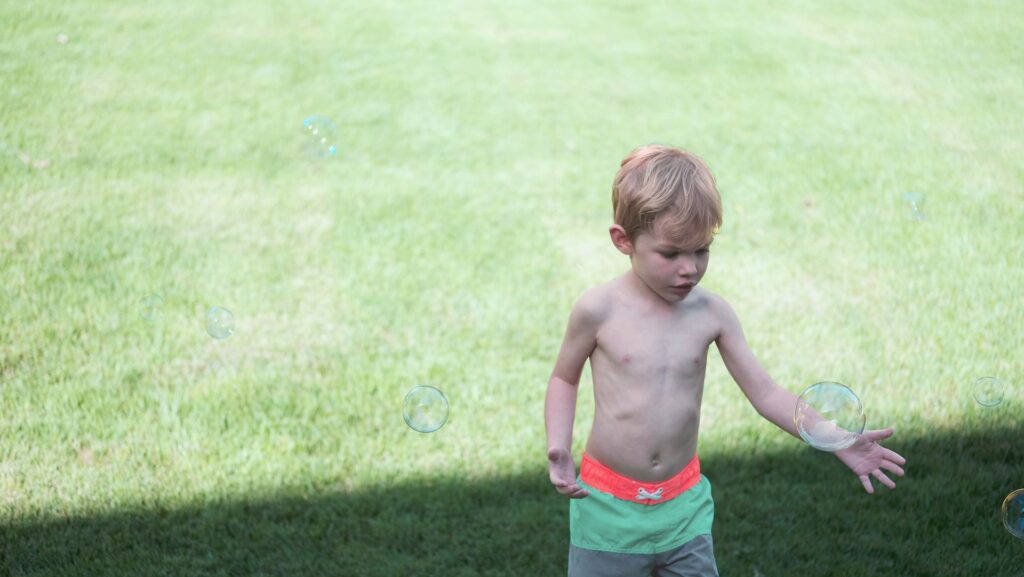
Water is the source of life, you literally cannot survive without it. This clear liquid is responsible for assisting the transference of nutrients into the cells in your body. It also moves waste products out, allowing your body to function properly.
The average adult is 60% water, you lose a large amount of this during the day through sweat, chemical processes in the body, and urine. Replacing it is essential and that’s the reason experts recommend you drink 2 liters, or more, per day.
But, water does more than just help your body to function properly. It can help to soothe anxiety in children.
But before you rush to start drinking water it is important to take quality into account. Although there are regulations controlling the quality of what is coming out of your tap, the testing of this water is completed at the treatment plant.
Unfortunately, after the testing process is complete the water must travel through miles of pipework. During this journey, it can pick up debris from inside the pipe. The pipes can also develop minuscule cracks that allow contaminants in. These range from bacteria to fertilizers and pesticides, and even factory waste. While none of these products are supposed to be in the supply, the mere fact that they can be is a good enough reason to invest in a filter.
After all, a 5 stage reverse osmosis from cleanandclearwater.com.au can be fitted in your supply line, will give you peace of mind, and saves you testing your home supply every time you want to use it!
Signs of Dehydration In Children

Children are not usually aware of when or why something is wrong with them. It can help to know the most common signs of dehydration in a child as this will alert you to the issue faster.
- No need to pass urine or very little urine and it’s dark yellow
- The darker the urine and the more pungent the smell the more severe the dehydration
- Dry mouth, your child will probably tell you this
- Lethargic
- Irritable
- Sunken eyes
- Fatigue or dizziness, especially in older children
- How Water Helps Anxiety
A lack of water leads to dehydration. The symptoms of dehydration are dizziness, muscle fatigue, headaches, increased heart rate, nausea, and even feeling faint. These are the same symptoms that you get if you are having a panic attack or simply feeling anxious.
In other words, if you are dehydrated you can easily feel anxious when you are actually dehydrated.
As you’re probably aware, children are not always the best at drinking enough water, making them prone to dehydration. This can lead them to feel anxious when they are actually thirsty.
Feeling anxious and having the above symptoms is likely to make them question whether they have something more serious wrong with them. The result of this is increased anxiety, effectively making the situation worse.
In fact, people who are already prone to being anxious can misread the signals and a lack of water can actually trigger a full-scale panic attack.
Mood

But, that’s not all. A lack of hydration has also been linked with mood changes. The lack of water in your body prevents essential nutrients from getting to your cells or the removal of toxins. This means you’re not working at peak efficiency. In short, you’re going to feel sluggish and your mood will suffer.
Of course, if your mood is low then you are likely to feel more anxious, simply because your outlook is more negative. This problem is compounded in children. They often don’t understand the issues going on with their bodies and, as such, may feel unable or unwilling to talk about it.
This leaves them wondering what is wrong with them when simply drinking water could help.
Tension
Lack of hydration in young people contributes to feeling tired and tense, which is a precursor to anxiety and potentially other issues.
Preventing Dehydration
The first step must be to ensure that the water you’re giving to your children is safe, this can be done via filters, as mentioned above.
You’ll then need to develop a schedule that ensures they are drinking 6-8 glasses of water. It’s a good idea to accompany all meals with a drink and a mid-morning/mid-afternoon snack. Keep the snack healthy, such as vegetables or fruit, and you’ll have covered 5 glasses of water and some fruit and vegetables effortlessly. That’s going to make it easier to make sure your child drinks another 1-3 glasses.
Of course, if your children are active or it is a particularly hot day then it’s a good idea to give them a drink. You can aim for 1 cup of water for every 15 minutes of exercise.
You should also focus on always having water with you, it’s harder to forget to drink if you have it there. Of course, you can always add a hint of flavor. The best way to do this is to freeze fruit in an ice tray and then put a cube or two into their drink.
Of course, setting a good example I essential to ensuring they drink the water they need. You can boost your intake level at the same time, that can’t be a bad thing.

You probably don’t give your child coffee but you’ll let them drink cola and other sugary drinks that contain caffeine. Unfortunately, this is a stimulant and will dehydrate your child faster. It is also likely to make them feel more anxious than usual.
In effect, you’ll be making the situation worse. It’s important to check the labels on drinks before you give them to your child, you may be surprised at what contains caffeine.
By paying attention to the small signs and keeping your child hydrated you can eliminate most of the anxiety issues they are facing. That’s good for you and for them!











